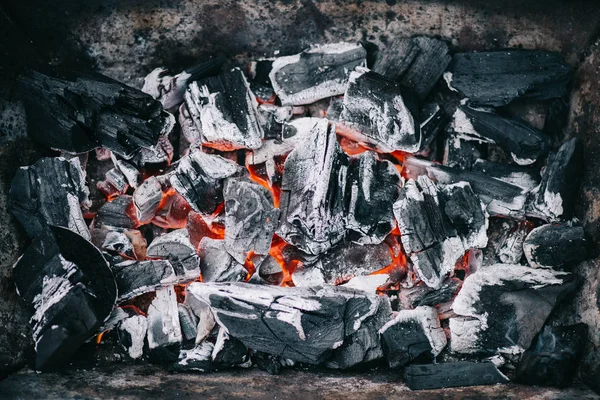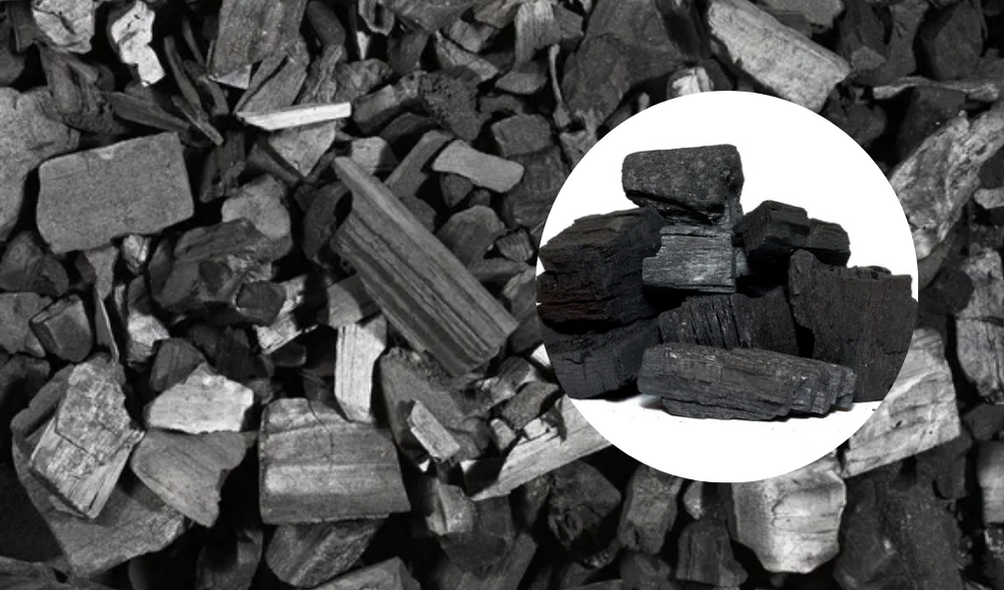Find out “How To Start Exporting Charcoal From Nigeria To Many Countries In The World” Greetings, and welcome to the exciting world of the charcoal export business! My name is Solomon, and I’ve spent over 5 years navigating the intricacies of this dynamic industry. I’ve witnessed firsthand the potential for Nigerian charcoal to heat homes and fuel passions across the globe.
Have you ever dreamt of turning a local product into a global success story? The charcoal export business offers a unique opportunity to do just that. Nigeria boasts a rich tradition of charcoal production, and with the global demand for this versatile fuel on the rise, there’s no better time to tap into this lucrative market.

Table of Contents
- 1 Why Charcoal? A Burning Opportunity
- 2 The Business of Charcoal: More Than Just Burning Wood
- 3 A Step-by-Step Guide to Becoming a Charcoal Export Powerhouse
- 4 Finding Your Perfect Match: Sourcing High-Quality Charcoal
- 5 Knowing Your Market: Research is Key
- 6 Finding Your Tribe: Connecting with International Buyers
- 7 Financing Your Dream: Making it a Reality
- 8 Becoming a Charcoal Export Leader: Beyond the Basics
- 9 FAQs: Your Questions Answered
- 10 The Final Spark: Turning Passion into Profit
Why Charcoal? A Burning Opportunity
Before diving in, let’s explore the reasons why charcoal remains a relevant and sought-after commodity in the 21st century:
- Enduring Popularity: According to a recent report by Business Research Insights, The global barbecue grill charcoal market size is expected to be USD 2151.3 million in 2022 and is projected to touch USD 3009.36 million by 2031, exhibiting a CAGR of 3.8% during the forecast period.
- Fueling Needs: In developing countries with limited access to electricity or gas, charcoal serves as a vital source of fuel for cooking and heating.
- Industrial Applications: Charcoal finds use in various industrial processes, such as metalworking and water purification.
Facts and Figures
A recent study by Academia Edu revealed that European countries are the leading charcoal importers, followed by North Africa and the Middle East. This highlights the vast potential market for high-quality Nigerian charcoal.
The Business of Charcoal: More Than Just Burning Wood
There are two primary ways to enter the charcoal export business:
- Sourcing from Local Producers: Nigeria has a well-established network of charcoal producers, particularly in regions like Jebba, Kaduna, and Oyo. Partnering with reliable suppliers who prioritize sustainable practices is key.
- Owning Your Production: If you have access to land and resources, you can consider establishing your own charcoal production facility. However, ensure you implement sustainable methods to minimize environmental impact.
Here’s a crucial point to remember: sustainability is not just a trend, it’s a necessity. The global market is increasingly demanding charcoal produced using eco-friendly practices. This means sourcing from responsible producers or implementing techniques like using felled or dead trees and replanting to ensure forest health.
A Step-by-Step Guide to Becoming a Charcoal Export Powerhouse
Now, let’s get down to the nitty-gritty! Here’s a comprehensive roadmap to guide you through the process of becoming a successful charcoal exporter:
- Building a Solid Foundation: Registration and Certification
- Business Registration (Estimated Cost: ₦50,000 – ₦100,000): Formalize your business by registering with the Corporate Affairs Commission (CAC). This establishes your legitimacy and opens doors to future opportunities.
- Nigerian Export Promotion Council (NEPC) Certification (Estimated Cost: Variable): The NEPC plays a vital role in supporting Nigerian exporters. Obtaining their certification demonstrates your commitment to quality and compliance with international standards.
Finding Your Perfect Match: Sourcing High-Quality Charcoal
Option 1: Partnering with Local Producers
- Conduct thorough research to identify reliable charcoal producers in Nigeria. Regions like Jebba, Kaduna, and Oyo are known for their charcoal production.
- Negotiate competitive prices and establish long-term contracts that emphasize sustainable production methods.
- Conduct regular quality checks to ensure the charcoal meets export standards (moisture content, fixed carbon percentage).
Option 2: Building Your Own Production Facility
- This option requires significant planning and investment.
- Research sustainable charcoal production methods such as using specialized kilns and minimizing wood waste.
- Partner with forestry experts to ensure responsible sourcing of raw materials and replanting initiatives.
Knowing Your Market: Research is Key
Before setting sail on your exporting journey, it’s crucial to understand your target market:
- Identify Potential Buyers: Research countries with a high demand for charcoal imports. Consider factors like climate, cultural preferences, and existing import regulations.
- Understanding Import Regulations: Each country has specific regulations governing charcoal imports. Familiarize yourself with these regulations, including quality standards (moisture content, size) and typical import volumes.
- Competitive Landscape: Research existing charcoal exporters in your target market to understand pricing strategies and product differentiation opportunities.
Research Checklist for Target Market Selection
| Factor | Description |
| Climate | Countries with colder climates often have a higher demand for charcoal for heating. |
| Cultural Preferences | Research grilling and barbeque cultures in your target market. |
| Import Regulations | Understand moisture content requirements, fixed carbon percentage limits, and any other quality standards. |
| Typical Import Volumes | Analyze existing import data to gauge market demand. |
Finding Your Tribe: Connecting with International Buyers
Here’s where the magic of connecting with potential buyers comes in! There are several effective strategies to consider:
- The Power of Online Platforms: Utilize online platforms like Alibaba and LinkedIn to showcase your high-quality Nigerian charcoal. Optimize your profiles with clear product descriptions, certifications, and competitive pricing.
- Leveraging the NEPC: The Nigerian Export Promotion Council (NEPC) frequently organizes trade missions to connect Nigerian exporters with international buyers. Participating in these missions is a fantastic opportunity to network and showcase your products.
- Industry Events: Attending international trade shows and conferences specific to the charcoal or foodservice industry allows you to meet potential buyers face-to-face.
- Building Your Brand: Quality Matters
- Ensuring Export-Grade Quality: Never compromise on quality. Work with accredited laboratories to test your charcoal and ensure it meets all international export standards (moisture content, fixed carbon percentage).
- Investing in Proper Packaging: Presentation matters! Invest in durable and heat-sealed woven polypropylene bags to protect your charcoal during transport. Consider branding your packaging to create a recognizable identity for your Nigerian charcoal.
- Logistics and Shipping: Navigating the Journey
- Understanding Incoterms (FOB vs. CIF): Incoterms (International Commercial Terms) define the responsibilities of buyers and sellers in international transactions. Familiarize yourself with incoterms like FOB (Free On Board) and CIF (Cost, Insurance, and Freight) to determine who is responsible for costs like freight and insurance.
- Finding Reliable Freight Forwarders: Partner with experienced freight forwarders specializing in handling charcoal exports. They will guide you through customs clearance procedures and ensure your shipment arrives safely at its destination.
Cost Breakdown (Estimated Ranges)
| Step | Estimated Cost Range (₦) |
| Business Registration | 50,000 – 100,000 |
| NEPC Certification | Variable |
| Sourcing Charcoal (Local) | Variable (depends on volume and quality) |
| Charcoal Production (Own Facility) | Significant Investment |
| Market Research | Free – Ongoing |
| Online Platforms (Subscription) | Variable |
| Trade Missions/Industry Events | Variable |
| Quality Testing | Variable |
| Packaging | Variable (depends on volume and quality) |
| Freight Forwarding | Variable (depends on destination, volume, and incoterms) |
Remember, the costs outlined above are estimates and can vary depending on your specific business model.
Financing Your Dream: Making it a Reality
The charcoal export business offers exciting opportunities, but starting any business requires financial planning. Here are some options to consider:
- Bootstrapping: If you have the initial capital, bootstrapping your business can be a viable option.
- Loans: Banks and financial institutions offer various loan products specifically for small and medium-sized businesses (SMBs).
- Grants: Government agencies and development organizations may offer grants to support businesses promoting sustainable practices.
Becoming a Charcoal Export Leader: Beyond the Basics
The journey to becoming a successful charcoal export leader doesn’t end here. Here are some additional tips to help you thrive:
- Building Relationships: Develop strong relationships with your suppliers, buyers, and freight forwarders. Communication and trust are crucial for long-term success.
- Staying Informed: The charcoal export industry is dynamic. Stay up-to-date on market trends, regulatory changes, and new technologies through industry publications and attending relevant conferences.
- Quality is King: Never compromise on the quality of your charcoal. Maintaining a consistent standard builds trust with your buyers and ensures repeat business.
- Embrace Sustainability: Sustainable practices are not just good for the environment; they are increasingly demanded by the market. Promote your commitment to sustainability to attract eco-conscious buyers.
FAQs: Your Questions Answered
Q: Is a charcoal export business profitable?
- A: Yes, with proper planning and execution, charcoal export can be a lucrative business. However, success hinges on several factors, including market research, competitive pricing, maintaining the highest quality standards, and building strong relationships with international buyers.
Q: How can I ensure sustainable charcoal production?
- A: Sustainability is paramount. Source your charcoal from producers who employ sustainable practices, such as using felled or dead trees and replanting programs. Consider establishing your own production facility that prioritizes environmental responsibility.
Q: What are the challenges of exporting charcoal?
- A: The charcoal export business presents several challenges, including navigating complex export procedures, maintaining consistent quality control, and staying competitive in the global market. However, with dedication, perseverance, and a focus on building strong partnerships, these challenges can be overcome.
The Final Spark: Turning Passion into Profit
The charcoal export business is an exciting and rewarding venture. It allows you to tap into a global market, contribute to Nigeria’s economic growth, and be a part of a rich cultural tradition. With careful planning, strategic execution, and a commitment to quality and sustainability, you can turn your passion for charcoal into a thriving international business.
Are you ready to take the first step? I encourage you to conduct further research, explore the resources mentioned above, and don’t hesitate to reach out to me for any questions you may have. Together, let’s turn the embers of your entrepreneurial spirit into a global charcoal export success story!
Also Read | The Fear That Inspired Elon Musk and Sam Altman to Create OpenAI









